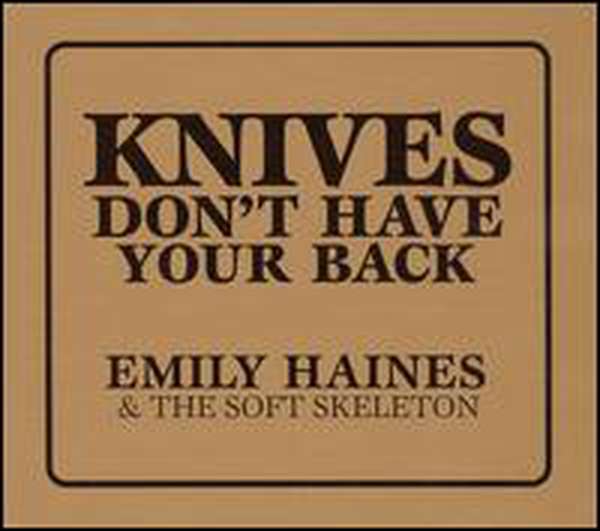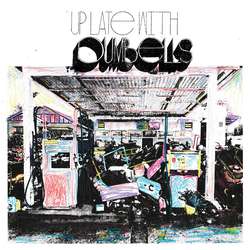Emily Haines is a diva. Okay, maybe not in the traditional sense of the word, but if the modern definition - "an extremely independent and talented female singer" - allows individuals like Christina Aguilera and Beyoncé to be considered divas, then Haines is more than deserving. Haines may be most well known for her work fronting Metric, but she has also contributed her vocal abilities to the likes of Broken Social Scene, Stars, and The Stills. And while her body of work with those acts has brought her the most attention, it is her solo material that truly stands out.
Knives Don't Have Your Back is the second solo-effort for Haines, following her hard to come by debut effort, Cut in Half and Also Double, which was self-released in 1996 - how extremely independent and diva-like of her to release her own recordings. Haines recorded the songs that comprise this album over the past four years with the help of numerous friends, dubbed "The Soft Skeleton," a group of individuals made up of a slew of musicians, including members of Metric, Broken Social Scene, Stars, and Sparklehorse.
Knives Don't Have Your Back is eleven songs of mellow indie rock, though even that basic description doesn't seem to do justice. Haines opens the album with "Our Hell," a soft indie rock song based around Haines piano playing and accented by Scott Minor's drum production. Think of John Lennon's "Imagine" being sung by a female and you'd be along the right track. The song also contains a little organ section, which further adds to the song's character. "Crowd Surf Off a Cliff" evokes a somber mood; at times the music was reminiscent of The Fire Theft in the way that it flows. It's a pleasant surprise to hear Haines playing a style of music far removed from Metric and Broken Social Scene. "The Maid Needs a Maid" picks up the pace a tad, its rhyming verses and contemporary wording give it a modern feel.
"Mostly Waving" is one of the more lively songs featured on the Knives Don't Have Your Back. The pianos are played in a higher octave; the song also features a horn section, giving the song a sound reminiscent of big band. "Reading in Bed" and "The Last Page" returns to that somber indie vibe evoked earlier, the former contains a few segments of string instruments thanks to The Tokai String Quartet. "Winning" closes out the album in a fitting manner; everything is striped away and all that the listener is left with is Haines and her piano. So basic, yet so good. The piano notes and Haines delicate melodies say it all.
But what of the lyrical content in Haines solo material? In a recent interview Haines stated, "as a writer I try to be as honest as possible. Unfortunately, that usually yields some unpleasant discoveries." And that is what we encounter throughout these eleven ballads, songs that are intimate, heartfelt, and revealing. There is no sugarcoated lining. There is no abstract imagery. There are only the truths that lie in the words being sung.
From the time of its release, Knives Don't Have Your Back consistently found its way into my CD player. There is something about the tone of Haines' voice and piano playing that makes this album so soothing. If you've neglected to purchase this album yet, I suggest looking into this album further as it is something special.



